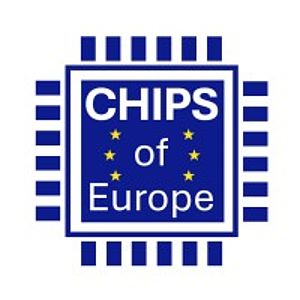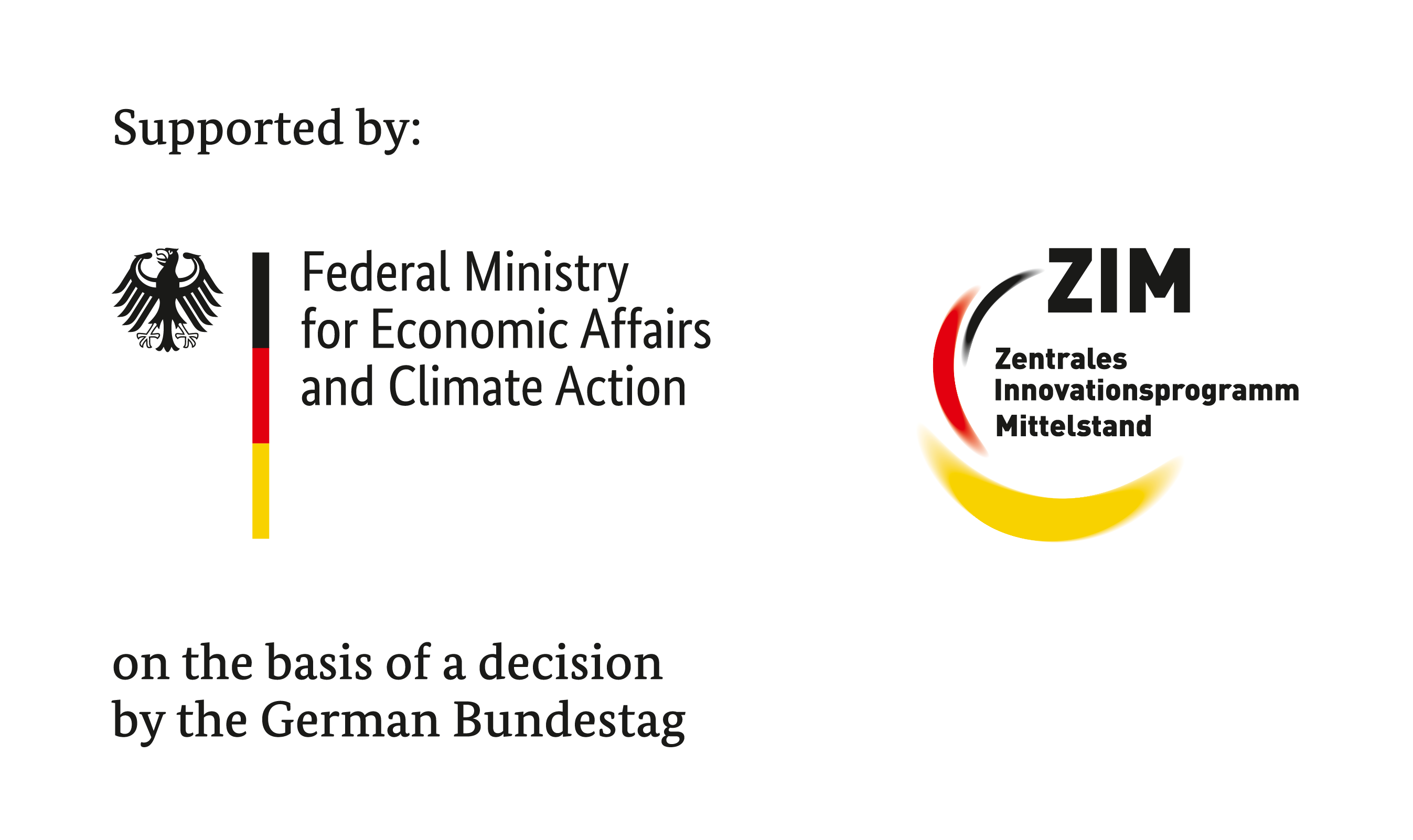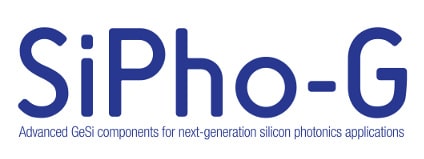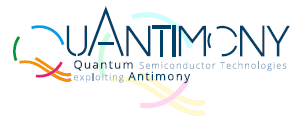Celebrating Our Achievements
Over the years, nextnano has received acknowledgment and support from external organizations for our contributions to nanotechnology. At nextnano, we are dedicated to promoting excellence and innovation in this field. We take pride in the validation and support we have earned, as evidenced on this page. Our accomplishments reflect our commitment to nurturing future leaders in semiconductor nanotechnology. To date we have received more than 1.8 Mio. € of grants, mostly by the European Union.


ELEQUANT (EU Grant)
Quantum technology with flying charge qubitsProject Goal
Manipulation of electronic wave packets in semiconductor nanostructures to propel solid-state flying qubit technology forward
Funding Information
EIC Pathfinder Open: 3.5 Mio. EUR
nextnano: 352,500 €
Project Duration: March 2025 to February 2029
HORIZON-EIC-2024-PATHFINDEROPEN-01
Consortium
Beneficiaries
- Institut Néel, CNRS, Grenoble (FR) (Coordinator)
- Commissariat à l’énergie atomique et aux énergies alternatives (CEA Paris-Saclay) (FR)
- University of Glasgow (UK)
- University of Warwick, Coventry (UK)
- Delft University of Technology (NL)
- nextnano GmbH, Munich (DE)
- GfG | Gesellschaft für Gerätebau mbH, Dortmund (DE)
Affiliated Entity
- Université Grenoble-Alpes, Grenoble (FR)
Associated Partners
- NTT | Nippon Telegraph and Telephone Corporation (JP)


CHIPS of Europe (EU Grant)
Creating Higher Education-Industry Programmes for the Semiconductor Industry of EuropeProject Goal
To increase the attractiveness of semiconductor-related study programmes and careers
Funding Information
EC DIGITAL: 4.8 Mio. EUR
nextnano: 200,090 €
Project Duration: June 2024 to May 2028
DIGITAL-2023-SKILLS-04-SEMICONDUCTORS
Consortium
Industry Partners
- Infineon Technologies (AT, DE)
- EnduroSat (BG)
- GE HealthCare (GE Vingmed Ultrasound, NO)
- nextnano GmbH (DE)
- ECPE European Center for Power Electronics (DE)
Academic Partners
- Hochschule München University of Applied Sciences (DE) (Coordinator)
- Brno University of Technology (CZ)
- Syddansk Universitet - University of Southern Denmark (DK)
- Technical University of Sofia (BG)
- University of South-Eastern Norway (NO)
- Université Paris-Saclay (FR)
- Lund University (SE)
- Centre for Research and Analysis (BG)
Associated Partners
- onsemi (CZ)
- Codasip (CZ)
- Cadence Design Systems (DE)
- imec (BE)
- TESCAN (CZ)
- X-FAB (FR)
- Thermo Fisher Scientific (CZ)
- Multimedia University of Kenya (KE)

EnQuTech-SIMUVLED (National Grant)
Quantum Mechanical Simulations of UVC LEDs and LasersProject Goal
To prepare a ZIM R&D project focused on advancing UVC LEDs and Lasers
Funding Information
nextnano: 70,000 EUR
Grant ID: 16KN121990
Program: ZIM Feasibility Study of the Federal Ministry for Economic Affairs and Climate Action (BMWK)
Project Duration: April 2024 to November 2024


SiPho-G (EU Grant)
Advanced GeSi components for next-generation silicon photonics applications (SIPHO-G)Project Goal
To develop germanium-silicon Quantum-Confined-Stark-Effect electro-absorption modulators (EAM) and Avalanche Photodetectors (APD)
Funding Information
EC ICT: 5.0 Mio. €
nextnano: 305,000 €
Project Duration: January 2021 to June 2025
Consortium
- imec, Leuven, Belgium (Coordinator)
- Mellanox Technologies Ltd, Yokneam, Israel
- Ericsson Telecomunicazioni SpA, Pisa, Italy
- Applied Materials Belgium NV, Leuven, Belgium
- nextnano GmbH, Munich, Germany
- nextnano Lab SAS, Corenc, France
- Aristotle University of Thessaloniki, Thessaloniki, Greece
- Luceda Photonics NV, Dendermonde, Belgium
- GLOBALFOUNDRIES Dresden Module One LLC & Co. KG, Dresden, Germany


Quantimony (EU Grant)
Innovative Training Network inQuantum Semiconductor Technologies exploiting Antimony (QUANTIMONY)
Project Goal
To provide high-level training to early stage researchers in the field of III-Sb semiconductor science and technology
Funding Information
EC MSCA-ITN-ETN: 3.8 Mio. €
nextnano: 252,788 €
Project Duration: December 2020 to November 2024
Consortium
- Consejo Superior de Investigaciones Científicas (CSIC): Instituto de Micro y Nanotecnología (IMN) & Instituto de Ciencia de Materiales de Madrid (ICMM), Madrid, Spain (Coordinator)
- Universidad Politécnica de Madrid, Spain
- Lancaster University, UK
- The University of Warwick, Coventry, UK
- Technische Universiteit Eindhoven, Netherlands
- Technische Universität Berlin, Germany
- Julius-Maximilians-Universität Würzburg, Germany
- Università degli Studi di Roma “Tor Vergata”, Rome, Italy
- Aixtron SE, Herzogenrath, Germany
- IQE plc, Cardiff, UK
- nextnano GmbH, Munich, Germany
Partner Organizations
- Bruker AXS (Germany)
- Cardiff University (UK)
- European Synchrotron Radiation Facility (Grenoble, France)
- Fluxim AG (Switzerland)
- Lancaster Materials Analysis Ltd (UK)
- Lund University (Sweden)
- nanoplus GmbH (Germany)
- nextnano Lab SAS (France)
- QuantCAD LLC (USA)
- Technische Universität München (Germany)
- TiberLab Srl (Italy)
- National Synchrotron Radiation Research Center (NSRRC)-Taiwan Photon Source (Taiwan)
- Universidade Federal de Sao Carlos (Brazil)
- Universidad de Cádiz (Spain)


UltraFastNano (EU Grant)
Electronic generation and detection in nanoelectronic devices at the picosecond scale (UltraFastNano)Project Goal
To develop Electronic Flying Qubits
Funding Information
EC FET Open: 3.3 Mio. €
nextnano: 290,000 €
Project Duration: January 2020 to December 2024
Consortium
- Commissariat à l’énergie atomique et aux énergies alternatives (CEA Grenoble, CEA Paris-Saclay), France (Coordinator)
- nextnano GmbH, Munich, Germany
- nextnano Lab SAS, Corenc, France
- Institut Néel, CNRS, Grenoble, France
- National Physical Laboratory (NPL), London, UK
- Chalmers University of Technology, Gothenburg, Sweden


FLASH (EU Grant)
Far-infrared Lasers Assembled using Silicon Heterostructures (FLASH)Project Goal
To develop a SiGe THz Quantum Cascade Laser
Funding Information
EC FET Open: 3.2 Mio. €
nextnano: 307,500 €
Project Duration: November 2017 to July 2021
Consortium
- Universita Degli Studi Roma Tre, Rome, Italy (Coordinator)
- University of Glasgow, UK
- IHP GmbH, Frankfurt (Oder), Germany
- ETH Zurich, Switzerland
- nextnano GmbH, Munich, Germany
Success story
The FLASH project resulted in the foundation of a new company in 2021: nextnano Lab SAS
nextnano Lab is an R&D company based in the Grenoble area, France.
Its main activity is to develop modeling and simulation tools in the field of solid-state quantum physics, in particular for semiconductor quantum devices.
nextnano Lab develops simulation tools for quantum transport based on the nonequilibrium Green’s function framework,
such as the nextnano.NEGF sofware which is commercialized by nextnano GmbH.
The most prominent application are Quantum Cascade Lasers (QCLs).
nextnano Lab is a simplified joint-stock company jointly owned by Dr. Thomas Grange and nextnano holding GmbH.
Thomas was working in the FLASH project on the modeling of silicon-germanium based terahertz QCLs and is now Chairman and Research & Development Director of nextnano Lab.
nextnano GmbH acknowledges 12 days of business coaching services offered by the European Innovation Council pilot as part of the FLASH project to commercialize results.



BSFZ Seal
nextnano GmbH has been certified by the Bescheinigungsstelle Forschungszulage (BSFZ) to get its R&D expenses refunded.About the BSFZ seal
With the BSFZ seal, companies can demonstrate their innovation competence in their external representation. The seal is awarded exclusively by the Research Allowance Certification Office (BSFZ). Companies receive the seal from the BSFZ if they are allowed to claim funding through the research allowance. They are allowed to do this if the BSFZ confirms that they are conducting research and development.
